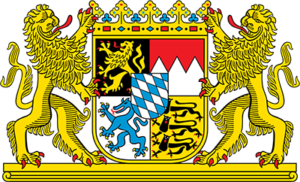14th Biotech Press Lounge of the IZB: Medical innovations that are changing the world
23.03.2022
Renowned scientists presented new therapies for blood cancer and hepatitis B, the future of xenotransplantation with pig hearts and a new discipline that allows organs to grow back in vivo.
Martinsried near Munich, March 23, 2022 – After a two-year Corona break, the Biotech Press Lounge, the established network meeting for multipliers from the biotech, pharmaceutical and venture capital sectors as well as journalists, is returning as a hybrid event: On March 23, 2022, around 40 guests met at the International Press Club in Munich for five inspiring keynote talks and subsequent exchange, while over 200 industry representatives followed the event on live streaming. MorphoSys is on the verge of improving the standard of care for rare and aggressive blood cancers. Novartis sees Europe in global competition, with the potential to become the most innovative continent in the world. Prof. Protzer is currently investigating how a new vaccine can be used as immunotherapy to help cure hepatitis B. Prof. Wolf described the future of successful xenotransplantation. This technology is complemented by mk2 Biotechnologies; this start-up at the IZB is developing an innovative discipline that can reproduce natural organs in vivo. The event was moderated by Anouschka Horn from Bayerisches Fernsehen (Bavarian Television).
Dr. Peter Hanns Zobel, Managing Director of the IZB, opened the event with a welcoming speech: “I am pleased that the Biotech Press Lounge can take place again, at least in a hybrid format. Not only Corona has shown us how urgently we need new drugs and therapies. The start-ups at the IZB are contributing to bringing new diagnostics to market as well as developing new medicines for diseases for which there is yet no cure”.
In the first talk of the event, Dr. Malte Peters, Chief Research and Development Officer at MorphoSys, spoke about the ambitious company strategy and its clear focus on hematology and oncology. “Over the past ten years, MorphoSys has transformed from a contract research provider into a global biopharmaceutical company with its own distribution structures,” said Peters. A major achievement for MorphoSys in 2020 was the accelerated approval and successful launch of Monjuvi in the US for the treatment of an aggressive form of blood cancer, which has been a major unmet medical need. “We are now entering an exciting new era with a promising pipeline of cancer drugs undergoing clinical trials, and an ambitious goal of redefining the treatment of cancer. We expect to be able to offer patients two novel medicines by 2025 which, if approved, have the potential to improve current standard therapies for rare and aggressive blood cancers.”
Heinrich Moisa, chair of the managing directors of Novartis Germany & Managing Director of Novartis Oncology, emphasized in his keynote speech how important networking is for innovation and how cutting-edge research can be developed together. He sees Europe in global competition, with the potential to become the most innovative continent in the world and particularly emphasized the innovative strength of Germany as a research location. Novartis, as a global pharmaceutical company, also uses scientific innovations and digital technologies to develop therapies in areas of great unmet medical need. But only together can the optimal framework conditions for ground-breaking medical innovations be created in Germany: from high-performance universities and research institutions, the protection of intellectual property, and the need for digitization, to the strengthening of research cooperation and strong capital markets. The recently opened new location in Munich has brought Novartis closer to the vibrant life sciences scene and numerous innovative cooperation partners in the region, opening up new opportunities for cooperation. “We at Novartis want to be part of Germany’s networked future, and together, through cooperation with top-level research from Munich, from Germany, contribute to finding solutions for the great challenges of the future.”
Prof. Ulrike Protzer, Director of the Institute of Virology at the Technical University of Munich and Director of the Helmholtz Center Munich, spoke in her presentation about a new immunotherapy for hepatitis B and hepatocellular carcinoma. As part of the European funding program “Horizon 2020”, the Helmholtz Center in Munich leads the TherVacB research project. Starting this year, a Europe-wide consortium of leading virologists, immunologists and hepatologists will test a new vaccine as an immunotherapy to cure hepatitis B patients in a three-year clinical study in Europe and Africa. Professor Protzer emphasized that the medical need for a cure for hepatitis B is extremely high because more than 3% of the world’s population (about 260 million people) are chronically infected with hepatitis B virus (HBV) and almost 900,000 people die annually as a result of the infection. “A therapeutic vaccination like the one we are developing is currently the most promising approach to curing chronic hepatitis B,” says Professor Protzer, coordinator of the project.
In his presentation, Dr. Sebastian Mangold, Managing Director of mk2 Biotechnologies, illustrated the development and production of innovative peptides as game-changers in the field of disease therapy and pharmaceuticals. The IZB-based start-up utilizes a process that can produce high-purity peptides in a scalable and cost-effective manner for any application. mk2 Biotechnologies thus provides the previously missing tool for the application of peptides in mass markets. According to Mangold, peptides that can be used as growth factors in organ tissue regeneration are particularly promising. “The concept of organ engineering offers a promising alternative to organ transplantation. It is an innovative discipline to create bioartificial organs that mimic natural organs in vivo. Progress in this field gives hope that organ engineering will become a commercial reality in the next decade. A key enabler for this is the cost-effective availability of specialized peptides and proteins that can serve as growth factors, which we are making available through our end-to-end scalable manufacturing process.”
Related to this, the head of the Collaborative Research Center for Xenotransplantation, at the Gene Center Munich, Prof. Eckhard Wolf spoke about genetically modified pigs as donors for xenotransplantation. He also pointed out that the number of organ donors is far from sufficient to cover the need for organ transplantations. A possible alternative is the use of animal organs, where pigs are currently considered to be the most promising donor organism. Targeted genetic modifications of the donor pigs can weaken rejection reactions and overcome physiological incompatibilities (e.g. in the area of blood clotting). “After decades of research in the laboratory, xenotransplantation has now reached the threshold of clinical practice. Genetically modified donor pigs for heart transplantation must be designed in such a way that their hearts are of the right size for humans and can be propagated through breeding. Neither from an ethical nor from a religious point of view are there fundamental reasons against xenotransplantation as a measure to treat life-threatening or serious diseases,” says Prof. Wolf.
Photo material from the event can be downloaded from our website: https://www.izb-online.de/mediathek/bildergalerien/
About the Innovation and Start-up Center for Biotechnology (IZB) in Martinsried near Munich
The IZB, founded in 1995, operates the innovation and start-up centers for biotechnology in Planegg-Martinsried and Freising-Weihenstephan, which has developed into a leading biotechnology center. More than 50 biotech companies with over 700 employees are currently based on 26,000 m2 of space. Here, work is being carried out on developing drugs for the most serious diseases, such as cancer, Alzheimer’s and various autoimmune diseases. A key criterion for the success of the IZBs is the physical proximity to cutting-edge research on the Martinsried/Grosshadern campus and the Weihenstephan campus. The new infrastructure measures such as the Faculty Club G2B (Gateway to Biotech), the IZB Residence CAMPUS AT HOME, the Elhardt chemistry college, the two kindergartens Bio Kids and Bio Kids2, as well as the two restaurants SEVEN AND MORE and The Bowl Food Lounge are location factors that are highly valued by the company founders. Successful companies that have emerged from the IZB include Corimmun (today Janssen-Cilag), Coriolis, Exosome Diagnostics (bought by Bio-Techn), ibidi, Immunic Therapeutics, Medigene, Micromet (today Amgen), MorphoSys, Octopharma or Rigontec (now MSD).
More information at www.izb-online.de
Press contact and image material requests:
Susanne Simon, Head of Press and Public Relations
Fördergesellschaft IZB mbH, Innovation and Start-up Center for Biotechnology
Am Klopferspitz 19, D-82152 Planegg-Martinsried,
Phone: +49 (0)89/55 279 48-17,
E-mail: ed.enilno-bzi@nomis
Website: www.izb-online.de



